JERUSALEM
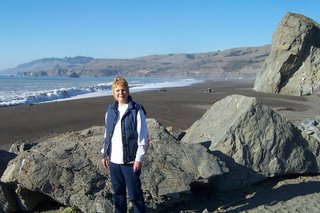
This is a photo of Mum after she retired but before she got sick. Mum in her later years took a few writing classes and wrote essays and short stories. Lacking a gift for "making shit up", Mum pretty much retold her life and described her memories without my usual doodoo.
Here is one I found while sneaking through her doc files which is appropos given the recent events in the world--
********Jerusalem*********
It is late Spring in Jerusalem, that season in the Middle East when tender clusters of green grass peek from rocky, barren soil after the sometimes heavy rains of winter, lending an emerald hue to the brown hills on which the city is built. There has descended a rare period of peace, for in 1965 this beautiful city is divided into two sections. The only traffic between eastern Arab territory and the newer Jewish settlements to the west must pass through the Mandelbaum Gate, not a gate at all, but a building once owned by a Mr. Mandelbaum, now a closely guarded checkpoint with barbed wire stretching as far as the eye can see to the north and south., creating a “No man’s land” in the center of this troubled city. Only sedans belonging to diplomats and the white vehicles of multinational United Nations personnel pass through the checkpoint at will. All others are closely questioned, and passports rigorously examined before they are allowed to cross to the other side of the city. Citizens of Arab Jordan are not allowed access to Israeli Jerusalem, or to the coastal settlements of Tel Aviv, Haifa, and Jaffa, while their Israeli counterparts cannot visit the religious shrines found within the Old City.
Early in 1964, Howard, my Air Force pilot husband received orders to go to Viet Nam, a small country in Southeast Asia. We had both been fearful when he received orders to report to that war ravaged land, and greatly relieved when the physical exam required before his deployment revealed inguinal hernias which must be surgically repaired. The operation was uneventful, and now, two months later, he received new orders. This time he was to report to Jerusalem as copilot in the air crew whose duty was to provide transportation for General Bull, the Scandinavian General in charge of United Nations peace keeping forces in the region. The most exciting aspect of his new assignment was that the kids and I could accompany him. We applied for passports, stood stoic while receiving the many vaccinations required, and comforted our three small children when their turn came. Finally, our few pieces of furniture packed and crated for the trip across the Atlantic Ocean, we said goodbye to friends, piled into our white station wagon and headed for New York City, where we would board an airplane & fly to our destination.
We have lived in this historic city for a year now, and I have learned to love the stark beauty of its landscape and embrace the cultural differences of its people, but at first I hadn’t been so enthusiastic. Less than a week after our arrival in this unfamiliar land, the air crew was sent to Germany, to be gone for at least a week. We had found housing soon after our arrival, thanks to the kindness and foresight of the other U.S. pilot and his wife, and had been provided temporary bedding by these same people. Our belongings, sent by ship, would take much longer to arrive than we, whose plane flight crossed many time zones on its way here. Our apartment, built of the pink-tinged limestone quarried in the area, was spacious , but lacking in some of the amenities we, as Americans, take for granted. In the kitchen, a short drain board on either side of the sink was built in, but no cabinets for food or storage of dishes were available. With the exception of the sink, the kitchen was bare. Running water poured from the spigots when they were turned on, but only cold water. No closets were built into the brightly painted walls of the bedrooms, so
clothes must be folded and placed in drawers. Since we had no furniture as yet, our suitcases provided the only storage for our family of five.
Now, with my pilot husband on his way to Germany, the weather changed from a warm but pleasant temperature to unbearably hot and eerily still. I was soon to learn that this aberration in weather had a name. In Arabic it is known as “khamseen”, loosely translated as “The wind that blows for five days”, as the prevailing wind switches from its usual westerly flow across the cool waters of the Mediterranean Sea to flow from land to water, bringing to Jerusalem the scorching dry heat of the desert. Sandy, Steve, Scott, and their tired mother were all stricken with an illness familiar to many travelers. Known variously as ‘Montezuma’s Revenge’, or ‘creeping crud’, it is caused by taking in food or water containing organisms not familiar to the body. The boys, now 2 1/2 and 15 months old, were often unable to reach the bathroom in time, so were still wearing diapers until we settled into our new foreign home. Sandy and her sick mother spent much of the day alternately gagging over the toilet and sitting on it. The second day of undiluted heat dawned sweltering and still, and the supply of clean diapers ran out, for our vomiting and diarrhea continued unabated. . No matter where you are in the world, certain needs are universal, and must be met. Our two boys needed clean diapers, so their mother, tired and ill herself must provide them. The disposable paper nappies used so extensively today weren’t yet available to young families. Dumping the entire load of dirties into the bathtub, and filling it with cold water, I began to scrub the filthy coverings. Soon, however, it became evident that my own violent retching wouldn’t allow me to continue, so wearily I sat on the side of the tub, drew my feet and legs into the porcelain vessel, and stepped gingerly on the excrement-filled diapers until they were less dirty, though certainly not what you would call clean. Draping the dripping pieces of cloth over every available surface in this furniture-bare space, I headed for bed to rest.
My repose was soon interrupted, as Sandy came into the room to excitedly announce, “Mom, there are donkeys and some sheep in our back yard.” Looking out the window of our second floor apartment, I could see that she was right-for there, not 20 feet from our windows, an entire family had set up a small goatskin tent, and they, along with several sheep, goats, and donkeys had settled in. Knowing nothing of Bedouin customs, I warned the children not to go outside, for these nomadic travelers camped in our dusty, rock strewn backyard were frightening to me. Newly arrived in a place foreign to my American sensibilities, knowing not a soul, and with my husband somewhere in Germany, I could only think of keeping our children safe. We had been given a casserole by the same thoughtful wife who found us a place to live, but other than this, had little food in the house. Later I learned that there were a few meagerly stocked grocery stores in the area, but most were in Jewish neighborhoods, and we lived in a suburb to the northeast of Jerusalem called Bet Hanina, a Jordanian village. Our car was still in route by ship, we had no telephone, and knew no-one to call anyway, we had no television, and our radio would pick up only local stations in Arabic or Hebrew, neither of which I understood, so there was nothing to do but camp out in this unfamiliar house and wait.
2.
The boys recuperated from their illness before Sandy and me, and one afternoon just before the Aircrew’s return, they proudly presented me with a gift. While I was resting, they had adorned the living room of our spacious, empty apartment with art work. Garishly scrawled on every wall of the room were numerous drawings in crayon extending as high as their short arms would reach. It was the first of many times during their childhood when I didn’t know whether to laugh or cry, to be angry or delighted. The crayons weren’t washable, and the thin coat of paint on the walls had been deeply etched by their drawings. The simple remedy of painting over the brightly colored images wasn’t available, as I had no idea where to find a place to buy the watery paint. When my husband came back, we would have to get in touch with the landlord, and confess to him the presence of graffiti on the walls of his brand new apartment. The kids and I felt better after that first week , Howard returned from his flight to Germany, but he didn’t share my ambivalent reaction when he saw the colorful drawings. He was angry! And most of his anger was directed at me! Hadn’t he left me in charge? Wasn’t I the adult? My protestations of illness fell on deaf ears, as he hadn’t been around to experience our debilitation, and couldn’t understand or accept such a lack of discipline on my part.
With the bout of illness behind us, my greatest fear was that the boys would ignore my admonitions to stay off the roof. Steve, our older son was fully mobile at the age of 2 1/2, while Scott had taken his first steps at the age of 9 months and was now a “speed demon” as he bounced from place to place around our almost empty rooms, so neither could be trusted on the roof alone. A low stone wall encircled the flat roof, but could be scaled easily by the short legs of two adventurous boys. Fortunately, their five year old sister understood the danger of falling off the roof of our stone house, so didn’t need constant observation.
Temperate weather returned, and we heard of an available apartment on the ground floor
of a similar complex. With two rambunctious boys, we really wanted to live where the kids didn’t need to navigate steep stairs to get outside, for when we lived at ground level they could come and go at will, and didn‘t have to be watched constantly. We moved our still packed bags into the second place, with plans to live there the remainder of our three year assignment. Now it was time to put together a household, not an easy feat in a country with no modern stores. In 1964, Arab Jerusalem offered only small shops, often no more than booths or recesses in walls. Fortunately, the turnover of United Nations personnel occurred regularly, so from time to time used furnishings were available, and we bought a freezer, a kerosene range, and a washing machine of the type not used extensively in our country for quite a few years. It had two tubs for water, one for washing, and another to rinse the clothes, which were then put through the ringer to extract the excess water. The clean clothes must then be lugged up the stone stairway to the flat roof, where they were hung on clotheslines, and usually dried speedily in the hot summer sun When hot water was needed, the ghiza must be lit with a match, and 30 minutes later, hot water was available from the tap. This Ghiza, a kerosene can turned upside down, was attached near the bottom of the hot water heater, and must be set to trickle slowly into a built-in receptacle. Then the slowly dripping kerosene could be ignited
3.
and adjusted until the roar of the flames was strong enough to heat the water, but without the force to cause an explosion. Wash day was an adventure in the Jerusalem of 1964.
On his first flight with the Air Crew, Howard had gotten to know the other members of the four man crew. We had already met Charlie, the other pilot, when he and his wife brought the casserole to us. Walt, the radio man, his wife, Nancy, and their four year old son, along with Teddy and his family of four rounded out the American team. We soon settled into a life very different from what either of us had known before. All members of the flight crew had a maid, even the enlisted men, whose income had been scarcely enough for survival in the U.S. We were surprised to learn that these domestic helpers worked part or full time, and received barely the equivalent of 20 to 30 dollars a month in Jordanian dinars. We inherited Naimeh from the recently departed American pilot Howard had replaced. Not only was she fluent in her native Arabic, her English was surprisingly good. She and her family were Christian Arabs, and Sunday their day of worship, so she was available to babysit on Friday and Saturday nights. Some of the helpers working for other U.N. families were Muslim, and didn’t work on Fridays, their holy day, and this sometimes resulted in a clash of schedules.
Now we were living in this beautiful but barren land with our three children, surrounded by others from a multitude of countries and cultures, and it seemed natural to get to know them. Sandy took the lead in this, and soon was playing with the children of our Belgian neighbors. Now almost six, she seemed to have no problem understanding the accented English they spoke, and even learned enough of their native French to converse easily with them, tumbling the unfamiliar sounds from her mouth with fluency.
Another change for this Mississippi born and raised couple were the parties. Here in Jerusalem , the U.N. people were all very far from home and family, and all wanted the companionship of others who spoke their language. Later, we would attend parties given by the many Scandinavian, Italian and Irish peacekeepers. In addition, once every month or 6 weeks, there would be a party at Government House, a large stone structure built by Kaiser Wilhelm in anticipation, it is said, of Germany’s conquering Palestine. It became Britain’s instead at the time of their mandate, and was now headquarters for the United Nations forces in the area. This imposing building sat at the summit of a hill just outside and to the North of the city. Its walls, built pleasantly in limestone, enclose offices and meeting rooms where much of the business of keeping the tenuous peace is conducted. There is also a large, vaulted room reached by arched entranceways which can be easily converted into a bar, with tables and dance floor, or long tables which seat large numbers of people for organized meals. Cultivated gardens of flowering shrubs and pine surround the structure, and in back are red clay tennis courts for the use of anyone with a desire to play and the credentials to enter the grounds. There is a kitchen staffed by Arab cooks and waiters during certain hours, and for any planned event. In this inviting setting the gathering will be held.
The evening of the party arrived. Once again Howard was out of town, as the Air crew
3.
had flown the “Gooney Bird “ to Beirut to deliver General Bull for UN business.
Disappointed at missing an opportunity to meet at least a few people, I decided to attend the party alone. By now, I had grudgingly accepted his untimely absences as inevitable, and decided that if I was to have any social life, it would be up to me alone. I made arrangements with Naimeh to stay with our children, and dressed for the large soiree with excitement, and more than a little apprehension. We had been issued a white Jeep with black lettering on either side marking our status as UN personnel, so our white station wagon was available for my use when the Air Crew was away. I drove the winding road to Government House, and was soon entering the people crammed hall.
What an exciting sight met my eyes. There in the crowded room were people with skin of every color, wearing clothing of many cultures. The room was filled with the hum of conversation and laughter. I could hear English spoken with heavy accents indicating the native country of the speaker, and the underlying whisper of conversations in languages strange and exotic to my ears. Music from a tape recorder was amplified and poured from speakers high on the walls of the domed room, and more than a few couples twirled around the polished stone floor. Accepting a drink from one of the Arab waiters who darted about, busily taking requests from the party goers, I found an empty chair on the perimeter of the dance floor, and sat enjoying the festivity of this enchanting scene. I was asked to dance by a couple of the Irish fellows who were attending this multi-national party, and found it sometimes a bit difficult for my American ears to understand my native language when it was spoken with different brogues and accents. There followed an invitation from an ebony skinned man half a head shorter then I, who was dressed in the multi colored garb of his native Uganda. While moving rhythmically to the music with this courtly man, I smiled inwardly at the thought of what my family and friends from recently desegregated Mississippi would say if they could see me now.
Later, there stood before me a dark haired, brown eyed man who asked if I would dance with him. As soon as we stepped onto the polished floor, his arm around my waist, mine resting on his broad shoulder, we began to move effortlessly to the music. This handsome man seemed to feel the lyrics and beat exactly the same as I, and when the tape changed from the romantic, pensive ballads of France and Italy to the raucous rhythms of the Beatles, the room was filled with swinging, gyrating bodies, including the two of us.
His name was Robert. He was from a town in Northern Italy called Trieste, and was, like me, at the party alone that night, for his wife wasn’t able to attend. The English he spoke, delivered with a slight accent, was fluid and easy. Many times during the remainder of the evening, this same charming man approached to ask me to dance, and each time I was delighted to say ‘Yes’. He revealed that in Italian his name was Umberto Ravalico, while his wife, who I was later to call “Alice” was A-li’-che. They had a daughter, Betty, almost the same age of our older son, who he referred to as “Bettina”, or “Little Betty”. When, later that evening, he was looking for a ride home, I discovered that the Ravalicos lived only a block away from our apartment, and was happy to offer him a lift. Graciously, he rode with me to our house, walked me to the door, and then navigated the dark street to
4.
his own house. It was difficult to remember that we had only just met, so comfortable had been our time together that evening.
Summer seemed to fly by, our few possessions arrived and were placed in the empty rooms, and school was soon to start . Having no idea what alternatives were available, we followed the lead of the other members of the Air Crew and enrolled our daughter in the same Catholic school their children attended. The Ravalicos became our close friends in that faraway land, and our children played together often. Through them, we met Tony and Daphne O’Connell. Tony had been a policeman in his native Ireland, and had met his talkative, attractive wife in the English pub where she worked. We three young couples, although coming from distant countries, found much in common, and shared many good times.
Winter rains arrived early and stayed late that year, bringing with them a biting cold . During one especially fierce rainstorm, I found to my dismay that the porous limestone interior of our home was unable to deflect the water driven against one of our walls by the howling wind, and the entire room was wet and unusable. A large kerosene heater was adequate to heat the section of our chilly apartment that contained the bedrooms, but unable to warm the entire house. It was then that I learned the reason for the glassed in porches found on most of the buildings, for heavy rain didn’t penetrate the glass, and the porches, though cold, stayed dry. One such porch extended from our living room, and protected it from the torrential rains, so we were able to use the parlor during the winter months. It was in that room that Howard and I hosted our very first dinner party.
“Easy“ you say? It probably should have been, but we hadn’t yet attempted to entertain a large group of people, and my years in school and working as a Nurse hadn’t prepared this Southern girl from a poor family to be a gracious hostess. And deciding who to invite---that was another dilemma. Of course Tony & Daphne, Robert & Alice would come, as would the other couples from the aircrew. Protocol dictated that we include Colonel Marsh and his wife, for he was the highest ranking American officer in the area. We had already been entertained at the United States Consulate and so must include that couple in our invitation. Several others from New Zealand and Italy, and a Scandinavian with his American wife, Louise rounded out the guest list. Somehow my southern cooking and informal ways were adequate, Howard’s innate gallantry charmed our female guests, and the dinner party was declared to be a success.
Although I had forgotten, Howard remembers a time when, going out to my car one dark evening, I was shocked to find someone already in the passenger seat. Knowing me, I probably ran into the house with this frightening story, hoping that Howard’s larger stature would intimidate our unwelcome intruder. The two of us approached the car, flung open the car door, and startled a small, confused Jordanian Guard who had climbed into our unlocked station wagon to get warm. He was probably more scared than I when awakened. We received a visit that winter from my husband’s uncle and his wife, who had come to this “Holy Land” to visit the sacred sites of Christendom. “Uncle Howard” 5.
was a Baptist preacher, while his wife “Nez” had been not so spiritual earlier in her life. This obviously led to friction between Nez and Uncle Howard’s sisters, for they never fully accepted this “fallen woman” into their family. During their visit, I vividly recall an evening when the elder Howard and I had a heated discussion, for I had difficulty accepting his narrow interpretation of the Christian scriptures. While he was convinced that the Muslim peoples of our adopted land were “Infidels, and Lost”, I couldn’t quite accept that a loving God could condemn whole cultures simply because they followed teachers other than the man Jesus.
Just after their short visit, as Christmas was approaching, we started to think about our first holidays away from the hustle and bustle of the Yule season in America. Because I had more time than money, and the opportunity to shop came only with periodic flights to the Base Exchanges in Turkey or Greece, I began to bake cookies and make candy to share with our new friends. Carefully, I covered the individual plates with plastic wrap, placed green and red bows atop the wrapped packages, and set them on a table to be delivered at a suitable time. To my horror, we returned home one day just before Christmas to find something covering every surface in the place. The large Kerosene stove had exploded, filling the air with black smoke, and scattering soot and ashes throughout the house. With a little scrubbing and dusting, the furniture , walls and floors could be cleaned, but my lovingly baked and wrapped parcels were also coated in the ebony mess. We were able to rescue some of the packages and rewrap a few others, but many plates of candy and cookies weren’t adequately covered, and they were thrown into the trash. So much for my attempt to plan ahead!
Sandy continued to be delivered to her school in Israel by one of the parents from the American Air Crew. She has since told me of the strictness of the Sisters of Mercy, and the blows across the top of their hands that the nuns dispensed to any fractious student, but her father and I weren’t aware of it at the time. Just before school was out the next spring, Howard and I decided we had enough of the dank apartment with its kerosene stove, and found that a spacious first floor flat was available in the same building where we originally camped on our arrival to Jerusalem.
We moved in as soon as possible. Naimeh went with us, and was terrific help with cleaning the new place. Because her previous employer was American, she had adopted many westernized habits, and explained to us the use of a certain room in the house which was a mystery to us. It was about half the size of our smallish bathroom, with a concrete floor and, in the center of the floor, a 2 inch hole. From her I learned that this was also a toilet room, where the women were expected to squat to relieve themselves. A bucket of water would then be used to clean up and wash the refuse down the drainhole. Because our house also had a bathtub and toilet, we used the small room to store and operate the washing machine. . The new house contained 5 or 6 large, spacious apartments. Two were on the ground floor, 2 upstairs, with a couple of small flats in the basement of the large stone building. There, for the first time since Howard and I were married, I had time to do whatever I wanted. I wasn’t pregnant and nauseous, didn’t have a baby to care for, 6.
wasn’t required to go to a Nursing job every morning, and had Naimeh to care for the three children whenever I asked. What a glorious sense of freedom!
Another of our new found friends was the manager of the Intercontinental Hotel, the largest in the city at the time, and talking with his petite wife one afternoon, I discovered that she played the guitar. I had always loved to sing, but played no musical instrument, so I asked if she would teach me a few chords. To my great surprise and joy, I learned that this pretty American woman had spent much of her childhood in Puerto Rico, an island in the Greater Antilles, and had been taught to play many of the intricate rhythms of that Spanish speaking country. Not only would she be delighted to teach me the chords on the guitar, she would also share her knowledge of these complex sequences with me. Lucky for neighbors and family, the unamplified guitar is relatively quiet , for I spent every spare moment trying to teach my clumsy fingers their position on the strings of that stubborn instrument. For hours, the only sound to be heard was the plink, plink PLOING! as over and over again I tried to make music from the discordant sounds. Happily, after only a few days, my tender fingers were beginning to toughen up, chords began to emerge, and my energies could be used to begin practice the rhythmic cadence I had been shown. Thus began my love/hate relationship with the guitar. I loved the beauty of it’s sound when played by agile, practiced hands: I hated the fact that, no matter how hard I tried to coax these sounds from the strings, my playing always fell short of the perfection I heard but could not produce. Little did I know at the time how many delightful experiences my novice guitar playing would bring in the future.
Howard and I spent a lot of time that summer with our friends from Italy and Ireland, and passed many a warm afternoon at the red dirt tennis courts behind Government House, lounging beside the swimming pool in Israel available to UN personnel, or enjoying a picnic at one of the white sand beaches south of Tel Aviv. Most UN workers were off on weekends, leaving a skeleton crew to man phones and perform guard duty. Unless one of the officials needed transporting to some distant town or city, the crew of the white DC7 could also enjoy Saturday and Sunday with their families, so many of our outings to the pool in Israel were made on these days. In order to get to the pool from our home in Jordan, we needed to cross into Israel through Mandelbaum Gate and navigate a cramped, narrow street through Mea Shearim, the ultra Orthodox quarter of this divided city. Residents here maintain much of the dress, customs, and speech of the 17th-century ghetto, which sometimes puts them in theological conflict with life in the modern state of Israel. Black-garbed men with side curls in front of their ears and wide brimmed black hats stroll the confining roadway, slowing any traffic through the area to a crawl. Once through this section, the road widens once more to reveal a pastoral countryside where newly planted trees predominate, for in 1965 the state of Israel hasn‘t yet been in existence long enough for its transformation to be complete.
Our young family’s first few trips were uneventful, but the time came when, as we drove the UN jeep through the Orthodox Quarter one Saturday, several rocks pelted the car, narrowly missing the windshield. Looking more closely, we could see that the stones
7.
were being thrown by young men dressed as carbon copies of their bearded fathers, and apparently observing the same strict code of ethics, intolerant of what they see as disrespect for their traditions. From that day forward, our travels to the pool were made on a day other than Saturday, the Jewish Sabbath.
Sandy, Steve, and Scott especially enjoyed these trips to the modern pool and long before we reached our destination, began their frequent inquiries. “Are we there yet?” “How much longer?” “When will we get there?” Finally, tiring of answering the same questions over and over, I devised a litany of my own. As soon as the now familiar landmarks came into view, I began to chant “I see the swimming pool” in a sing-song voice. Soon all four of us were engrossed in looking for the pool. The first one to spot it would begin this refrain again, “I see the swimming pool , I see the swimming pool”. At these times, their dad must have felt like the only adult in the car, with four children instead of three.
Because the plane was seldom filled to capacity on flights to the larger cities in the Middle East, the wives, and sometimes the children also, were allowed to fill any empty seats.
Because of this, I was able to accompany my pilot husband to Beirut, Lebanon on a couple of occasions. That beautiful seacoast city was known at the time as “the Paris of the Middle East”, and richly did it deserve that title. With modern hotels overlooking a boat -filled harbor, warm Mediterranean breezes, avenues bordered by wide sidewalks, stores filled with merchandise from all over the world, and many small clubs where live music invited dancing, Beirut was a playground for the rich and famous. And I, neither rich nor known to anyone other than family and friends, was able to partake of this intoxicating fare. One trip, I bought a new bathing suit from one of the Boutiques in this bustling city . Shops in Israel were beginning to carry a few clothes manufactured in their fledgling country, but styles were limited and sizes not always standard. Jordanian stores were small, and swimsuits not readily available. We had left the United Sates at a time when 2 piece bathing suits were scantier than ever before, but still covered hips and breasts modestly. Now, in Beirut, the glass fronted stores displayed bikinis from all over Europe, and I just had to have one. One skimpy black suit caught my eye, and when I tried it on, fit my thin lanky body perfectly. At first, I wore this daring attire only when we went to the almost deserted beaches south of Tel Aviv or swam in the pool at our hotel in cosmopolitan Beirut, but eventually felt comfortable enough to appear so scantily clad at the pool in Israel.
Living as we did in Arab territory, where women are encouraged to cover themselves fully before appearing in public, the beaches and pool in Israel were a shocking sight. There were no facilities for changing into swimming attire, and the absence of bathrooms on the expansive beaches meant that men, women, and children must relieve themselves on sandy shores without the privacy we Americans had come to expect. While the Israeli Sabra seemed comfortable undressing on the flat sand beach, we, steeped in Puritanical tradition, invented ways to find more privacy for our disrobement. A beach towel held in front while we changed became our dressing room, and provided at least the illusion of modesty. Howard and I solved this dilemma the following summer, when we bought a
8.
small tent to use when we went to the beach. One of our favorite spots is found just south of Tel Aviv at the ancient seaport of Ashkelon. The giant wall that spanned the city is, in 1965, almost completely submerged by drifting sand, leaving only a few glimpses of inscribed stone pillars overlooking the blue Mediterranean water. There is a long history of conquest here, but now the beach is peaceful, and waves lap gently upon the almost deserted shoreline. When the O’Connells and Ravalicos accompanied us, our six children frolicked at the waters edge, while their parents lounged watching them, occasionally joining in their lighthearted play.
School was once again out for the summer, and all three of our children were at home daily. Sandy, now with a year of learning behind her, was pleased that the couple who lived just above us in this large house had five children. Giselle and Fatima were near her in age, and they had brothers slightly older than our two boys. The youngest boy, Zoo Zoo, spent many days that summer trailing after his two older brothers, while Steve and Scott usually found their own amusement playing in our rocky yard, where the absence of vegetation inspired their imaginative play. From bone-dry dirt and stones, they built roads, forts, landing strips for airplanes, and who knows what else. As long as they stayed in the yard, they were safe, at least in their mother’s mind. Then one day, I heard screaming from the front yard, and Scott, now only 2 1/2 ran into the house, blood streaming from his head, and his older brother told me that he had been walking on top of the low stone fence when he lost his balance and fell. His father and I took him quickly to Government House, where the American corpsman sewed up a large laceration on top of his head.
.
The children’s parents, John and Emille Bitar were Arab Christians, and their dress and customs similar to that of the American and European families who were living in their country. We weren‘t close to this Arab couple, though they did attend several shindigs we threw, including a Halloween costume party where Emille showed up dressed as a Gypsy woman, complete with low-cut blouse and long earrings. I have recently been told that the Bitars moved to Bakersfield, California after the 1967 war between Arab and Israeli, when many of their family and friends found refuge in the land-locked city of Amman.
In September of 1965, we found a new school for our 7 year-old daughter. This new school is radically different from that run by Catholic Nuns in Israel. Sandy will now attend school in Ramallah just north of our comfortable home. It is operated by Quakers, and known as Friends House. Most of the teachers here are Arab, and the Jordanian school requires that the students all wear uniforms. Plaid jumpers over white blouses are worn by the girls, while the male students sport light blue smocks over their regular clothes. In this school, she is required to take a course in Arabic, and fills one small notebook with this intricate but strangely beautiful script which remains a mystery to me, but makes sense to her at the time. She continues to be a diligent student, and seems more content in this new school than when she had to interact daily with the strict , firm, and unbending nuns. Our two boys aren’t old enough to enter school yet, so remain home each 9.
day. During this period, the narrow gap in their ages becomes a benefit, as each keeps his brother occupied, and they usually work out their differences with a minimum of parental interference. Predictably, now and then their bickering escalates into angry clashes, and small fists fly. Nevertheless, peace reigns most days in our household, and when the air crew flies to distant places, I can use the time to practice chords on the guitar loaned to me by the generous wife who,. along with her husband managed the recently constructed Intercontinental Hotel.
The Mediterranean breezes become more brisk, Autumn has arrived, and Thanksgiving will be here soon. Somehow I never thought about the fact that this day of gratitude is a uniquely American holiday. Except for a few families from our home country we have met here, there seems to be no-one who understands the importance of this occasion to us. But it has always been of special significance to me, and sharing Thanksgiving with others a reason to celebrate, so we invited Tony & Daphne, Robert & Alice to join us in our celebration. Our six children will eat at borrowed card tables in the kitchen, while their parents enjoy their meal at our newly purchased dining room table. We have in our freezer a turkey bought on a recent trip to the commissary at the Air Force base in Turkey, and it is a rare treat in this land where mutton is readily available, but other meats more difficult to come by. The day before Thanksgiving finds me baking pies and cooking cornbread for the only kind of dressing with which I am familiar. I haven’t yet been introduced to the variety of stuffings others enjoy with turkey. Sweet potato pie will have to be replaced this year by the more traditional pumpkin pie served outside the deep south. Canned pumpkin was available at the commissary, but sweet potatoes aren’t grown in this area of the middle east, so are not for sale in the stalls of the crowded souks. Only locally grown fruits and vegetables in season make it to Jordanian tables. Still, the meal turns out well, and I am surprised to learn that our friends are unfamiliar with the cranberry sauce so necessary to turkey for our countrymen. The six children, at a table of their own, enjoy a raucous meal away from parental watchfulness, while their parents relish the opportunity to carry on a conversation uninterrupted by youthful questions. It is indeed a day for giving thanks, and surrounded by friends and children in this currently peaceful region , I feel that I have finally found a home.



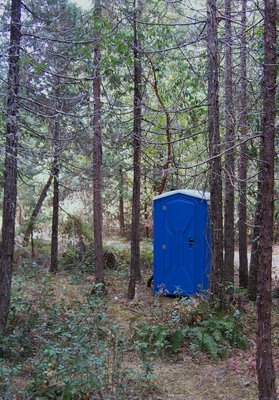


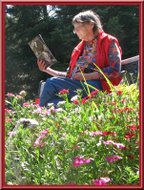
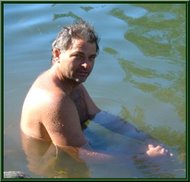
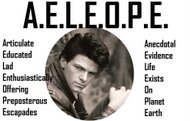



















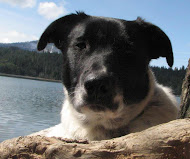



1 comment:
My friend J. lived in Berlin around this time -- her dad was in the tank division of the British army. She's recently started publishing monthly newsletters of her recollections from then.
These stories all seem like such a faraway time and place -- and yet, not. So much seems so familiar. "Like it was yesterday"!
Post a Comment